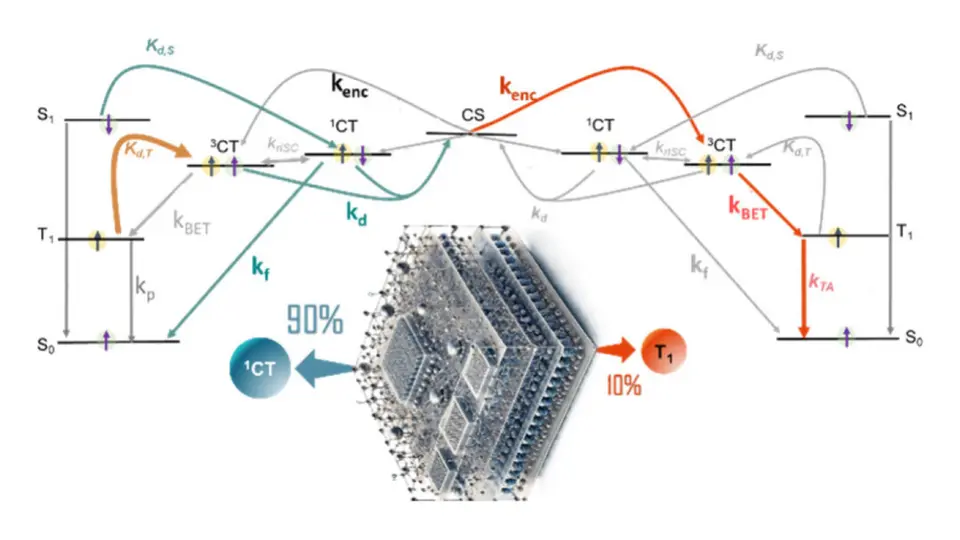Rethinking Energy Loss in Organic Solar Cells
/ Announcements
In a surprising twist to conventional wisdom, researchers have found that the presence of triplet excitons—long seen as a liability in organic solar cells—does not necessarily lead to large energy losses. A collaborative team led by PDI, University of Potsdam, and colleagues from Washington State University, has shown that these triplet states can, under the right conditions, play a far less damaging role than previously thought.
The work — led by Safa Shoaee, carried out by Mohammad Saeed Shadabroo, and published in ACS Energy Letters — focuses on the donor–acceptor system PM6:o-IDTBR. Despite the system generating a substantial population of triplet excitons, the researchers observed exceptionally low voltage losses — just 160 millivolts from nonradiative recombination. This challenges the long-held belief that triplet states are a key source of voltage loss in organic photovoltaics.
The key lies in timing. If the triplet exciton lives long enough—around 10 microseconds in this case—it can be reactivated, converting back into a charge-transfer (CT) state rather than disappearing and wasting energy. Because this reactivation happens quickly compared to how fast the CT state typically decays, only about 10% of the recombination events are affected by triplets. In other words, the majority of the potentially harmful triplet states are harmlessly recycled.
This insight has important implications for the design of next-generation organic solar cells. As organic photovoltaics continue to push toward commercial viability, findings like this refine our understanding of energy losses and may bring us one step closer to more affordable, scalable solar energy technologies.
As organic photovoltaics continue to push toward commercial viability, findings like this refine our understanding of energy losses and may bring us one step closer to more affordable, scalable solar energy technologies.
Title: When the Triplet State Doesn’t Matter: Insights into Its Impact on VOC
Authors: M. S. Shadabroo, N. Tokmoldin, A. Shukla, A. Patterson, T. M. Melody, O. Alqahtani, B. A. Collins, D. Neher, S. Shoaee
Source: ACS Energy Lett., 10, 2419-2427 (2025)
DOI: 10.1021/acsenergylett.5c00384
